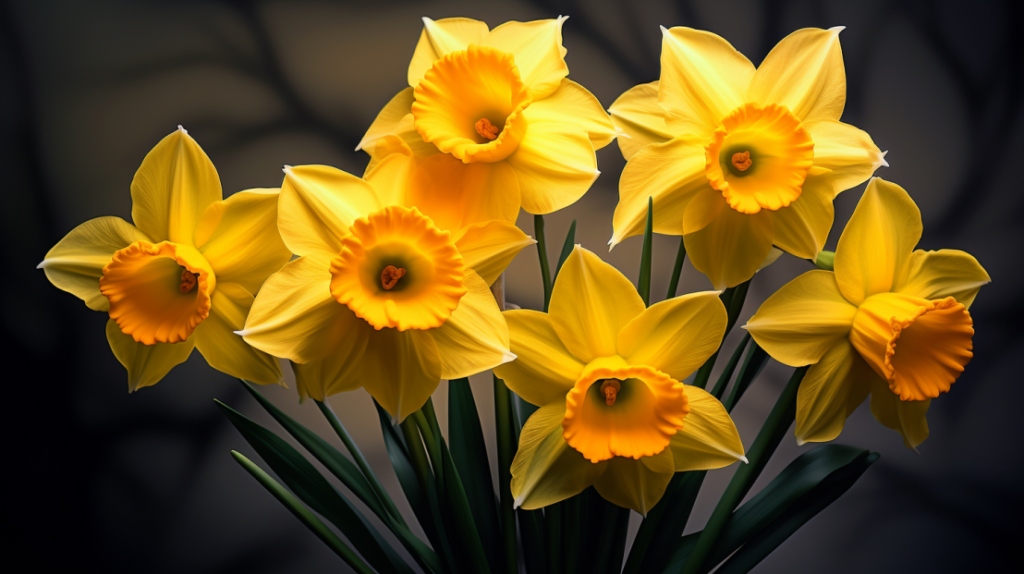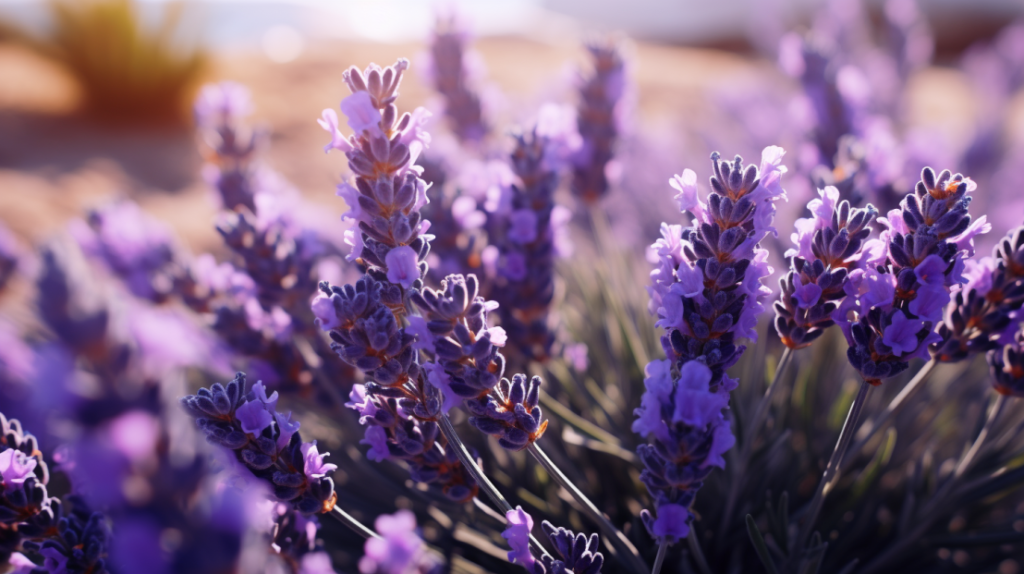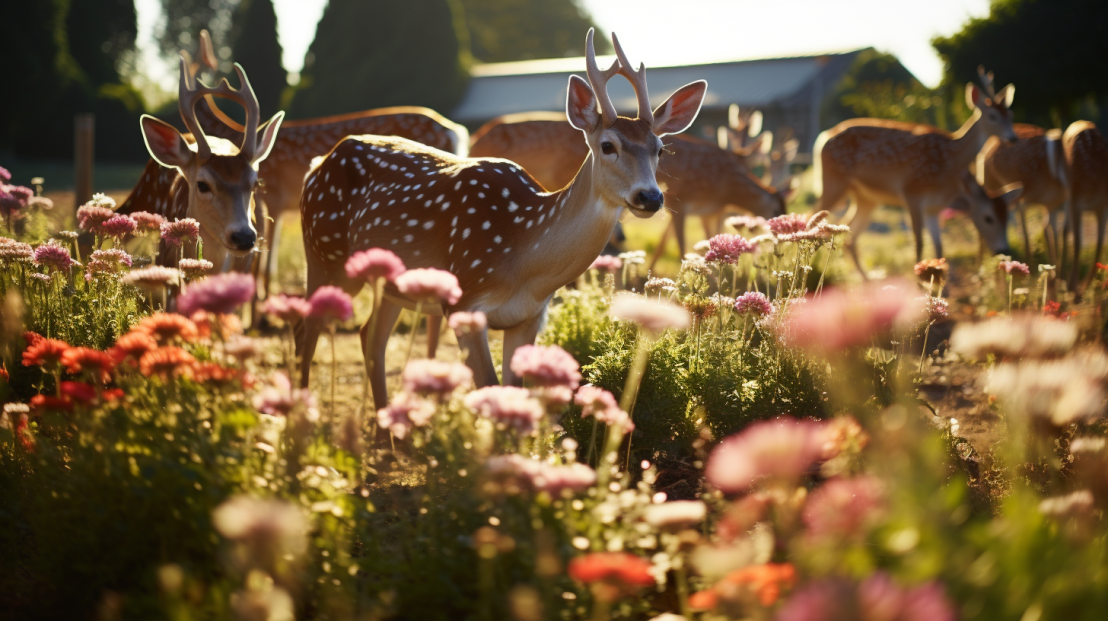Are you tired of deer wreaking havoc on your carefully cultivated garden? If so, you’re not alone. Many gardeners struggle with finding effective ways to keep deer out of their prized plants. Fortunately, there are several deer-resistant plants that can serve as natural deterrents. In this article, we will explore the top 7 plants that can help protect your garden from deer damage.

1. Daffodils (Narcissus spp.)
Daffodils are not only a delightful sight in the spring but also act as effective barriers against deer. These vibrant flowers contain toxic alkaloids that deer find unappetizing. By planting daffodils around the perimeter of your garden or placing them strategically among more vulnerable plants, you can create a natural deterrent that discourages deer from venturing further.
Here are some key features of daffodils:
- Low-maintenance: Daffodils are easy to grow and require minimal care, making them an ideal choice for busy gardeners.
- Variety: With numerous cultivars available, you can choose from a wide range of colors, sizes, and bloom times to suit your preferences.
- Long-lasting blooms: Daffodils typically bloom for several weeks, providing a burst of color and cheer to your garden.

2. Lavender (Lavandula spp.)
Lavender is not just prized for its soothing fragrance and stunning purple flowers; it also happens to be highly effective at repelling deer. The strong scent of lavender is particularly offensive to deer, making it an excellent choice for keeping them away from your garden.
Consider the following features of lavender:
- Sun-loving plant: Lavender thrives in sunny locations, making it ideal for gardens with ample sunlight.
- Attracts pollinators: In addition to repelling deer, lavender also attracts bees, butterflies, and other beneficial pollinators to your garden.
- Versatility: Lavender can be grown in the ground, in containers, or even as a hedge, allowing you to incorporate it into your garden design in various ways.

3. Catnip (Nepeta cataria)
While catnip may be infamous for attracting cats and driving them into a frenzy, it also serves as an effective deterrent against deer. The strong scent of catnip, caused by a compound called nepetalactone, repels deer and prevents them from feasting on your garden plants.
Here’s why catnip is a great addition to your deer-resistant garden:
- Easy to grow: Catnip is a hardy perennial that can thrive in a wide range of soil conditions. It requires little maintenance, making it an ideal choice for gardeners looking for fuss-free plants.
- Secondary benefits: Aside from its deer-repelling properties, catnip is beloved by many cat owners who appreciate its ability to entertain their feline companions.
- Border plant: Planting catnip along the edge of your garden or strategically placing it near more susceptible plants can create a natural barrier that deters deer from approaching.

4. Salvia (Salvia spp.)
Salvia, commonly known as sage, is a versatile plant that boasts vibrant colors, attractive flowers, and a pungent scent that deer find unappealing. By incorporating different varieties of salvia in your garden, you can help protect it from deer while adding beauty and flair to your landscape.
Consider the following features of salvia:
- Drought-tolerant: Salvia is known for its ability to withstand dry conditions, making it a great choice for gardens in regions with limited rainfall or water restrictions.
- Long bloom period: Salvia often blooms for an extended period, providing a continuous display of color throughout the growing season.
- Pollinator-friendly: Like lavender, salvia attracts pollinators, such as bees and butterflies, enhancing the ecological health of your garden.

5. Boxwood (Buxus spp.)
Boxwood is not just an aesthetically pleasing addition to your garden; it also acts as a natural deterrent against deer. These evergreen shrubs have dense foliage and emit an odor that deer find unappealing, discouraging them from entering your garden space.
Here’s why boxwood is worth considering for your deer-resistant garden:
- Versatile landscaping plant: Boxwoods can be shaped into hedges, topiaries, or used as foundation plantings, allowing you to add structure and elegance to your garden design.
- Year-round interest: With their evergreen foliage, boxwoods provide visual interest and maintain their beauty throughout the seasons.
- Low-maintenance: Once established, boxwoods require minimal care, making them a practical choice for gardeners who want attractive, deer-resistant plants without added hassle.

6. Rosemary (Rosmarinus officinalis)
Rosemary is not only a popular culinary herb but also an excellent deer-resistant plant. Its fragrant needle-like leaves emit a strong scent that deters deer from munching on your garden plants.
Consider the following features of rosemary:
- Drought-tolerant: Rosemary is known for its ability to thrive in dry conditions, making it suitable for gardens with limited water availability.
- Culinary uses: In addition to its deer-repellent properties, rosemary is a versatile herb that can enhance the flavor of various dishes.
- Evergreen beauty: With its attractive foliage and occasional delicate blue flowers, rosemary adds visual interest to your garden year-round.

7. Yarrow (Achillea millefolium)
Yarrow, also known as “the deer-resistant plant,” is a hardy perennial that can withstand various growing conditions and still remain unappetizing to deer. Its finely divided leaves and clusters of delicate flowers make it an attractive addition to any garden.
Here’s why yarrow is a fantastic choice for a deer-resistant garden:
- Vibrant blooms: Yarrow comes in a variety of colors, ranging from white and yellow to pink and red, creating eye-catching displays.
- Low maintenance: Yarrow is a low-maintenance plant that requires minimal care once established, making it suitable for busy gardeners.
- Medicinal properties: Yarrow has been used for centuries in traditional medicine for its antiseptic and anti-inflammatory properties.
Frequently Asked Questions (FAQs)
1. How can I protect my plants from deer?
In addition to planting deer-resistant plants, there are other strategies you can employ to protect your garden from deer. Some options include:
– Installing deer fencing or netting around your garden perimeter.
– Using deer repellents, such as sprays or granules, that emit scents or tastes unpleasant to deer.
– Creating physical barriers, such as thorny bushes, to deter deer from entering your garden space.
– Planting herbs, like garlic and chives, around your garden as natural deer deterrents.
2. Are there any other plants that deer generally avoid?
Yes, there are several other plants that deer tend to avoid. Some additional options include:
– Dusty miller (Senecio cineraria): Known for its silvery-gray foliage, dusty miller is unpalatable to deer.
– Butterfly bush (Buddleja spp.): This shrub produces beautiful and fragrant flowers that attract butterflies while repelling deer.
– Snapdragon (Antirrhinum majus): With its tall spikes of colorful flowers, snapdragons are both visually stunning and unappealing to deer.
3. Do deer-resistant plants guarantee that deer won’t enter my garden?
While deer-resistant plants can significantly reduce the likelihood of deer entering your garden, they are not foolproof. In times of extreme hunger or diminished food sources, deer may still nibble on these plants. It’s essential to monitor your garden regularly and be prepared with additional protective measures if necessary.
4. Are there any plants that attract deer?
Yes, deer are attracted to certain plants that are rich in nutrients, tender shoots, and high water content. Some examples of plants that can attract deer include:
– Hostas (Hosta spp.): The broad, lush leaves of hostas are highly appealing to deer.
– Daylilies (Hemerocallis spp.): These brightly colored flowers can be a magnet for hungry deer.
– English ivy (Hedera helix): Deer are known to browse on the leaves of this climbing vine.
By incorporating these top 7 deer-resistant plants into your garden, you can create a beautiful and protected space that deer will be less likely to invade. Daffodils, lavender, catnip, salvia, boxwood, rosemary, and yarrow offer a variety of colors, scents, and textures, allowing you to create an aesthetically pleasing garden while deterring deer.
Remember, while these plants are known to be highly deer-resistant, individual deer behavior can vary. It’s always a good idea to observe and adapt your garden protection strategies accordingly. With the right combination of deer-resistant plants and protective measures, you can enjoy a thriving garden that remains unappetizing to deer.
Hey there, fellow nature enthusiasts! I’m Mark Gray, the passionate owner of OutdoorAnimals.com, a hub dedicated to uncovering the incredible world of outdoor animals. Whether you’re a hiker, a four-wheeler, or just someone who revels in the beauty of the great outdoors, you’re in the right place. I seek to understand all varieties of animals, from the great elk to the simple mouse, my goal is to write and share this knowledge with the public.

